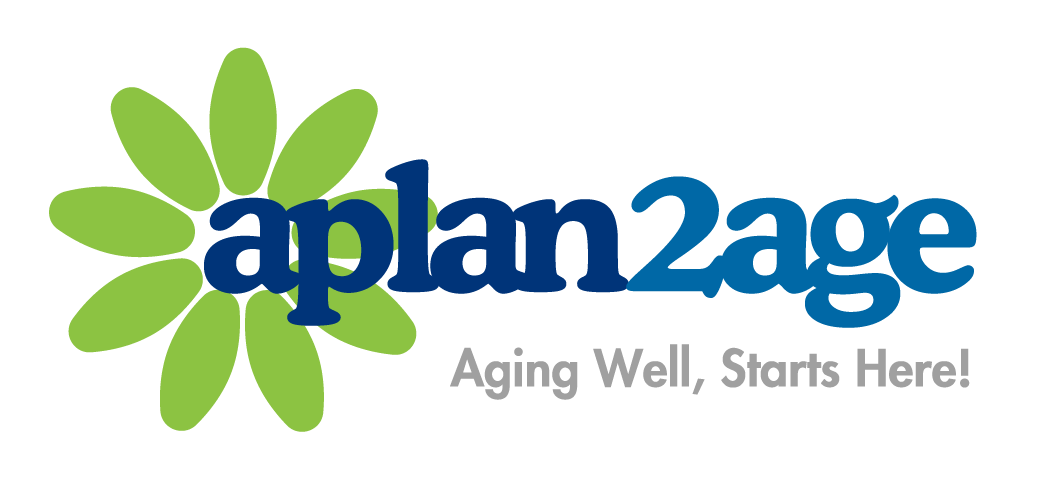Family Matters
Family conversation
Planning before a health event can make that new journey easier. Many resources exist to assist you and your family in planning and navigating this journey of aging.
A Family Conversation before a health event is a great way to execute the care plan. It will help to ensure an understanding of the wants and needs of older loved ones. This conversation will help alleviate erroneous assumptions.
Have you downloaded the template?
This will help guide you through this site. Learn More: www.aplan2age.org/plan.
Pieces of the Conversation
Initial Meeting without Loved One(s)
If you are an adult child or grandchild, reach out to other family members that may want to be a part of the conversation with the loved one(s) down the road. Talk between each other to see who wants to talk to mom/dad/grandparents/etc. The most successful conversations begin with the siblings being on the same page and choosing a family member that resonates as being the “planner”, alpha, or the closest relationship to the loved one(s).
Starting the Conversation with Loved One(s)
After the siblings are on the same page, have the “planner” place a call to their loved one(s) and start the conversation by asking for advice. “Hey mom/dad, I need your advice…” You can discuss over the phone more indepth, or pause and give them time to think, and circle back in the near future. Make sure to follow up, set another time to talk or meet.
After having the first conversation, ask more questions to help build a Comprehensive Care Plan. This may take place in more than one setting, and can be changed as life changes.
Explore Your Role as a Care Partner
Look at who else can help as your loved one(s) ages. Reach out to your employer about care giving while working and find resource to help you on your journey.
Pieces of the Conversation
Initial Meeting without Loved One(s)
If you are an adult child or grandchild, reach out to other family members that may want to be a part of the conversation with the loved one(s) down the road. Talk between each other to see who wants to talk to mom/dad/grandparents/etc. The most successful conversations begin with the siblings being on the same page and choosing a family member that resonates as being the “planner”, alpha, or the closest relationship to the loved one(s).
Starting the Conversation with Loved One(s)
After the siblings are on the same page, have the “planner” place a call to their loved one(s) and start the conversation by asking for advice. “Hey mom/dad, I need your advice…” You can discuss over the phone more indepth, or pause and give them time to think, and circle back in the near future. Make sure to follow up, set another time to talk or meet.
After having the first conversation, ask more questions to help build a Comprehensive Care Plan. This may take place in more than one setting, and can be changed as life changes.
Explore Your Role as a Care Partner
Look at who else can help as your loved one(s) ages. Reach out to your employer about care giving while working and find resource to help you on your journey.
Have you downloaded the template?
This will help guide you through this site. Learn More: www.aplan2age.org/plan.
Starting the family Conversation
It Takes A Village
Creating a Plan provides a platform to discuss the roles of adult children and grandchildren in the care of an older loved one. Determining what an adult child who lives 5 miles from a loved one, or one who lives across the country, can do to help assist. This conversation can alleviate hurt feelings and help everyone to be on the same page. Think about this…
If you have children...
Think back to when they were in daycare or school. It wasn’t just you involved in their day-to-day life. Let’s take a look at who may be involved just getting your kids to and from school.
- Was there a family member that was able to pick them up?
- Did you create a carpool schedule with some of the neighbors?
- Did your employer provide flexibility for you to get your kids to school or on the bus?
- If they took the bus, then the bus driver was a part of your support team.
In most cases, there were other people involved helping you and your family during these years.
If you have ever been sick...
Raise your hand if you’ve ever been sick and needed to stay home to rest, or if you helped take care of someone else that was sick. Who was all communicated with to make sure things were still covered?
- Did you call off of work? Did your team help with your workload/notify others or cancel meetings, etc?
- If you have children (even furkids), did you still provide care for them or was someone else available to help with them?
- Maybe you called your doctor or went to urgent care…
In most cases, there were other people involved in you getting back on your feet.
If you ever planned a party or a vacation...
If you have ever been involved of planning a party, whether a birthday party, retirement party, wedding or anniversary – you know you cannot do it by yourself, you need to call on others to help…
- Who is all involved in choosing the date, guest list, food options, venue, decor, etc?
- Even if it was just you planning it, each vendor would have a point of contact- there is always someone on your support team.
If you have only been a party guest, have you ever planned a weekend away or a longer vacation?
- Who decided where to go? Did you drive or fly? Camp or book hotels?
- What activities did you do? How many did you book ahead of time?
- Did you take off of work? Who did you have to communicate with to cover shifts, clients, meetings etc?
In most cases, there were other people involved in helping you throw a successful party or taking that vacation you’ve been planning for months.
Who’s Calling Mom/Dad?
Starting a Family conversation can be challenging.
The first step is to have an adult child reach out to Mom, Dad, Grandmother, etc. The child reaching out could be the “planner” in the family, someone within the elder care field, or the child with the closest relationship to the loved one. Coming together to discuss this first may be your first step… “Did you notice anything different with mom/grandma over the holidays? I think we should talk to her and dad about their goals as they age.”
“I need some advice”
Most of the time people want to help and feel valued.
If you are an adult child reaching out to the older loved one, it may be easier to start the conversation by asking them for advice. “Mom its Jake/Jane, and I need some advice…” Mom will usually say, “Sure Jake, what do you need?”…“Jane and I were wondering if you and Dad can set up a time to talk and help us understand what you guys want as you age. We hope this never happens, but if you or Dad got ill or had a bad fall and needed care, where do you want to live?”
Explore Your Role as An Employed Care Partner
With over 10 million family caregivers in the workforce, averaging 1 in 6 employees, it is extremely important to understand balancing work and caregiving. Caring for someone has an impact on your life and may result in absenteeism, reduced productivity, and increased health care costs. Care partners often suffer loss of hours, wages, insurance and other benefits, potentially even changing or quitting their job to find more flexibility. If your employer has not addressed elder care at work, there are resources to assist them and you.
It’s a Balancing Act
Over 70% of employees are trying to balance their personal life of caregiving and remaining productive at work.
30% of employees in any workplace deal with Elder Care at Work.
Communication is Key
If you are working, please check your employer’s website for any benefits to assist you in caregiving. Being comfortable in talking with a co-worker, your boss or HR is a key to planning.



